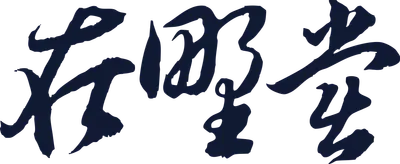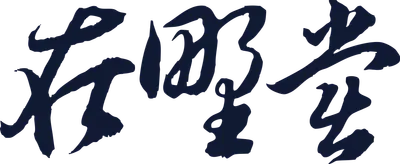作者/编辑:李聪玲 责任编辑:鲁慧文
2025年6月22日,赖清德总统发表了震撼全台、感动国际的演说——《团结国家十讲》。这不仅彰显了台湾民主自由的坚定方向,也向世界宣示了一个不可动摇的历史与现实真理:台湾从未属于中华人民共和国,台湾属于2300万自由的台湾人民。赖总统的话语铿锵有力,触动人心,在民主与专制的全球对决中为台湾站稳道义制高点。与此形成鲜明对比的,是中国共产党一贯的霸权思维、战争叫嚣与灰色渗透。中共妄图通过军机绕台、认知作战、金钱收买、媒体操控等手段达成对台“统一” 的目的,其本质是一场对民主制度的颠覆,对台湾主权的践踏,对国际秩序的挑衅。
中共经常高喊“台湾自古以来属于中国”,更肆无忌惮地将“一个中国原则”强加于全世界,胁迫国际社会噤声、切断台湾外交空间。但这不过是一套赤裸裸的谎言包装的霸权逻辑,其根本谬误在于:中华人民共和国从1949年建政至今,从未统治台湾一天。
台湾在1895年被清政府割让给日本,长达50年之久为日治时期。1945年日本战败,中华民国政府接收台湾。但1949年,中华民国政府撤退来台后,中华人民共和国在大陆成立,两个政权分治,互不隶属。从此,台湾事实上与中国共产党政权毫无从属关系。这种“互不隶属”并非“内战余续”,而是两个主权政体的长期并存。
更重要的是,台湾人民自1980年代解除戒严以来,用三十年的努力建构出完整的民主宪政体系。台湾是全球少数几次完成和平民主转型的国家之一,现今拥有健全民主选举、多元媒体、三权分立与司法独立,任何一个标准来看,台湾早已是一个事实上的主权独立国家。
中华人民共和国无法以历史幻想或武力胁迫否定台湾现实存在的政治与法律主体性。台湾不是中共的“叛乱省”,而是一个早已脱离其势力范围,拥有完整国家功能的独立政治体。
赖清德总统的《团结国家十讲》涵盖台湾当前所面临的内外挑战与国家定位,其最核心的一点,是明确宣示:中华民国与中华人民共和国互不隶属,台湾的前途只有台湾人民能决定。这不仅是对台湾历史与现实的精准总结,更是对世界民主阵营发出的坚定信号。在赖总统的演讲中,我们看见了一个领导人对自由的坚持,对国家认同的尊重,对民主制度的坚守。他不仅强调国防的重要,更呼吁全民团结对抗中共渗透与认知作战,并提出强化经济、教育、文化软实力的政策方针,让台湾在全球民主版图中持续发光发热。赖总统的演讲,是一份宣言,更是一份誓言——绝不接受一国两制、绝不接受中共主导下的“统一”,绝不让2300万台湾人民的未来被任何外部强权决定。
中共对台湾的侵略,从来不是“可能发生”,而是早已持续进行的多维度战争。以下我们逐一揭露其手段之邪恶:
近年来,中共不断以军机绕台、东部战区演训、航母靠近等方式挑衅台湾。其目的是制造“即将开战”的恐慌氛围,试图压迫台湾人民就范、接受“和平统一”的骗局。这种行径不仅威胁台湾,也扰乱整个印太地区的安全秩序,破坏亚太和平。
中共在社交媒体、网络平台上大肆进行假讯息传播、制造社会对立。诸如“美国不会保护台湾”、“战争必败”、“年轻人不愿当兵”等论调,都是典型的中共认知作战剧本,目的就是要让台湾人民自我怀疑、自我否定、丧失信心。
通过各种台商协会、地下统战组织、中资企业,中共对台湾政坛、媒体、学界、宗教团体等进行长期渗透收买。近年中共更企图影响台湾选举,干扰民主机制,扶植亲共候选人,甚至用金钱或暴力要胁台湾人“选错就打”。
中共用金钱外交挖台湾邦交国,用威胁手段逼迫国际组织不接纳台湾,从世卫组织到国际刑警、ICAO,台湾人民的国际权利屡屡被中共粗暴剥夺。这种作为不仅是对台湾的不尊重,更是对全球民主价值的破坏。
赖清德总统以《团结国家十讲》呼吁全民共同捍卫国家、抵御外敌,这是当前局势下最关键的号召。无论是政党、族群、世代、南北,我们唯有认清大敌,才不致自乱阵脚。台湾的敌人不是国民党,而是对岸那个不容异己、消灭自由、妄图并吞的中国共产党。只要中共一天不放弃武力犯台的图谋,台湾人民就一天不能掉以轻心。
面对战争阴影,台湾人民不能沉溺于“和平幻觉”;面对信息作战,我们不能轻信“投降才能保命”;面对中共的统战糖衣炮弹,我们更要挺直脊梁、认清本质:这是一个灭绝香港自由的政权,是一个活摘器官、镇压异见、封锁网络、毒害人民的邪恶专制政体。
我们不能妥协,不能投降,不能沉默。台湾是亚洲最坚强的民主灯塔,中共若吞并台湾,将是全球民主的重大挫败。今日台湾的危机,就是明日世界的危机。
因此,我们呼吁:美国、日本、欧洲等民主国家加快实质协防台湾机制;加强对中共统战行为、间谍渗透、科技盗窃的联合制裁;抵制中国制造、审查中资企业全球并购;协助台湾参与国际组织,共享人类命运共同体的真正价值。
台湾是海洋国家,不是附庸;是民主灯塔,不是专制殖民地;是2300万人民共同缔造的国家,不是中共权贵的“神圣领土”。
我们要向赖清德总统致敬,向所有捍卫台湾主权、坚持民主信仰的人致敬。我们要大声说:民主不会自动存在,自由需要奋战守护。让我们团结起来,共同守住这块自由的土地,为台湾,也为世界!
Taiwan Has Never Belonged to the People’s Republic of China: A Firm Support for President Lai Ching-te’s “Ten Points on National Unity”
By Li Congling Translator: Lu Huiwen
On June 22, 2025, President Lai Ching-te delivered a powerful and moving speech—“Ten Points on National Unity”—which resonated across Taiwan and drew international attention. More than a national address, it was a bold affirmation of an undeniable historical and political truth: Taiwan has never belonged to the People’s Republic of China (PRC); it belongs to the 23 million free people of Taiwan. President Lai’s resolute words touched hearts and solidified Taiwan’s moral high ground in the global contest between democracy and authoritarianism.
In stark contrast stands the Chinese Communist Party (CCP), which continues to cling to hegemonic thinking, threats of war, and creeping infiltration. Through military intimidation, cognitive warfare, economic manipulation, and media influence, the CCP seeks to “unify” Taiwan—not as a matter of national identity, but as an assault on democracy, a violation of Taiwan’s sovereignty, and a direct challenge to the international order.
The CCP often repeats the slogan, “Taiwan has always been part of China,” and aggressively imposes its “One China Principle” on the world, pressuring governments to silence Taiwan’s voice and block its international participation. But this narrative is nothing more than a hegemonic lie dressed in historical revisionism. The core fallacy lies in this irrefutable fact: The PRC, established in 1949, has never governed Taiwan—not for a single day.
Taiwan was ceded by the Qing dynasty to Japan in 1895 and remained under Japanese rule for 50 years. In 1945, after Japan’s defeat, the Republic of China (ROC) assumed administrative control over Taiwan. Then in 1949, the ROC government relocated to Taiwan, while the PRC was founded on the mainland. Since then, the two regimes have operated independently with no mutual jurisdiction. This “mutual non-subordination” is not the residue of a civil war, but the reality of two separate sovereign governments coexisting over decades.
More importantly, since the lifting of martial law in the 1980s, the Taiwanese people have built a complete democratic constitutional system over the course of three decades. Taiwan is one of the few nations in the world to have achieved a peaceful democratic transition. Today, it boasts competitive elections, independent judiciary, vibrant civil society, and press freedom—by every measure, Taiwan is already a sovereign, de facto independent country.
The PRC cannot erase Taiwan’s political and legal reality through historical fantasy or military coercion. Taiwan is not a “renegade province” but a fully functional, self-governed nation far outside the CCP’s control.
President Lai’s “Ten Points on National Unity” outlines Taiwan’s internal and external challenges and reaffirms a central principle: The Republic of China and the People’s Republic of China are not subordinate to each other; Taiwan’s future can only be decided by the people of Taiwan. This is not only an accurate reflection of history and current reality, but also a powerful message to the global democratic community.
In his speech, we saw a leader committed to freedom, national dignity, and democratic governance. President Lai emphasized national defense, called for public unity against CCP infiltration and disinformation, and proposed policies to strengthen Taiwan’s economy, education, and cultural influence—ensuring that Taiwan continues to shine on the world’s democratic map.
His speech was not just a declaration, but a vow: Taiwan will never accept “One Country, Two Systems”; it will never accept unification under the CCP; and it will never allow its future to be dictated by an external authoritarian power.
The CCP’s aggression against Taiwan is not a hypothetical scenario—it is an ongoing multidimensional war. Let us examine its tactics:
• Military intimidation: The CCP constantly flies warplanes around Taiwan, conducts Eastern Theater Command exercises, and moves aircraft carriers into nearby waters to simulate war readiness and create panic—aiming to force Taiwanese citizens into accepting the false promise of “peaceful reunification.” This is not only a threat to Taiwan but to peace and security in the entire Indo-Pacific region.
• Cognitive warfare: On social media and online platforms, the CCP spreads fake news to divide public opinion. Narratives such as “The U.S. will abandon Taiwan,” “War is unwinnable,” or “Young people won’t fight” are all part of a disinformation playbook aimed at sowing doubt and discouragement within Taiwan.
• Infiltration and bribery: Through business associations, underground networks, and PRC-backed companies, the CCP has attempted to infiltrate Taiwan’s political parties, media, academia, and religious communities. It has meddled in Taiwan’s elections by propping up pro-Beijing candidates and even threatening voters with the message: “Choose wrong, and there will be war.”
• Diplomatic suppression: The CCP aggressively poaches Taiwan’s diplomatic allies and bullies international organizations into excluding Taiwan. From the WHO to Interpol to ICAO, Taiwan’s global participation is repeatedly denied. These acts not only disrespect Taiwan but also undermine global democratic norms.
President Lai’s speech is a clarion call for national unity and collective defense. Regardless of party affiliation, ethnicity, generation, or region, we must recognize the true enemy—not domestic rivals, but the authoritarian CCP across the strait that tolerates no dissent, destroys freedom, and seeks to annex Taiwan.
In the face of looming conflict, the people of Taiwan cannot indulge in illusions of “peaceful surrender.” In the face of information warfare, we must not be fooled by lies like “surrender means survival.” Against CCP’s sugar-coated propaganda, we must stand tall and see clearly: this is the regime that crushed Hong Kong’s freedom, harvests organs, suppresses dissent, censors the internet, and poisons its own people.
We must not compromise.
We must not surrender.
We must not remain silent.
Taiwan is Asia’s strongest beacon of democracy. If the CCP conquers Taiwan, it will be a devastating blow to democracy worldwide. Today’s crisis in Taiwan could be tomorrow’s global crisis.
We therefore call on democratic nations—the United States, Japan, Europe—to accelerate concrete defense coordination with Taiwan; to strengthen joint sanctions on CCP’s infiltration, espionage, and tech theft; to boycott “Made in China” products and block Chinese capital from acquiring key industries; and to support Taiwan’s participation in international organizations and in building a true “community of shared future” based on freedom and human rights.
Taiwan is a maritime nation, not a vassal.
It is a beacon of democracy, not a colonial outpost.
It is a country built by 23 million free people, not the CCP’s so-called ‘sacred territory’.
We salute President Lai Ching-te.
We salute all who defend Taiwan’s sovereignty and uphold the ideals of democracy.
Let us say loud and clear: Democracy does not exist by default—freedom must be fought for and defended.
Let us unite to safeguard this land of liberty—for Taiwan, and for the world.



